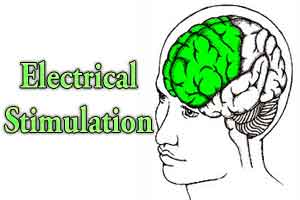- Home
- Editorial
- News
- Practice Guidelines
- Anesthesiology Guidelines
- Cancer Guidelines
- Cardiac Sciences Guidelines
- Critical Care Guidelines
- Dentistry Guidelines
- Dermatology Guidelines
- Diabetes and Endo Guidelines
- Diagnostics Guidelines
- ENT Guidelines
- Featured Practice Guidelines
- Gastroenterology Guidelines
- Geriatrics Guidelines
- Medicine Guidelines
- Nephrology Guidelines
- Neurosciences Guidelines
- Obs and Gynae Guidelines
- Ophthalmology Guidelines
- Orthopaedics Guidelines
- Paediatrics Guidelines
- Psychiatry Guidelines
- Pulmonology Guidelines
- Radiology Guidelines
- Surgery Guidelines
- Urology Guidelines
Cranial Electrical Stimulation helpful in Depression & Anxiety

Cranial Electrical Stimulation has been found to be helpful in People with anxiety and depression but the evidence is insufficient that CES has clinically important effects on fibromyalgia, headache, neuromusculoskeletal pain, degenerative joint pain, depression, or insomnia.The researchers Dr.Paul G. Shekelle and associates have concluded this after conduction of randomized controlled trials of CES.Their findings have been published in Annals of Internal Medicine.
Cranial electrical stimulation, delivers a current similar to that of a 9-volt battery through electrodes on skin to the brain. Researchers examined data from 26 clinical trials that randomly assigned some patients with a variety of chronic painful conditions to receive this therapy and others to get a placebo or dummy treatment or stick with usual care.
Most of these trials were too small or brief to offer conclusive evidence that cranial electrical stimulation works for headache, joint pain, musculoskeletal pain, headache, fibromyalgia, insomnia, or depression alone, the analysis found.
For people with both depression and anxiety, however, researchers found “low-strength” evidence of a modest benefit.
“If there is a benefit, it is probably not on average a large benefit, because when a treatment has an average benefit that is large this is usually pretty obvious even from a small number of studies or even studies of a small number of patients,” said lead study author Dr. Paul Shekelle, of the West Los Angeles Veterans Affairs Medical Center.
“But the benefit of cranial electrical stimulation does not have to be large for it to still be a useful additional option for treatment of these conditions, because for most of them we don’t have large benefit treatment options,” Shekelle said by email.
With depression and anxiety in particular, four of the five studies in the analysis were conducted more than 40 years ago using shock therapy devices that are no longer available, researchers note in the Annals of Internal Medicine.
In the largest and most current study, patients did report bigger reductions in depression and anxiety symptoms with shock therapy than with usual care that included antidepressants. But the study only enrolled 115 patients and lasted just five weeks.
If this study had found similar benefits after six months or a year, that might have offered “moderate” quality evidence of effectiveness, Shekelle said. And if a few additional studies of this size and duration got consistent results, then there might be “high quality” proof.
Cranial electrical stimulation appeared safe, or at least the review didn’t find evidence of serious side effects.
Amid a worsening opioid crisis, doctors and patients are increasingly considering this type of therapy as an alternative to prescription painkillers, many of which can be addictive. But based on the research to date, the evidence in support of cranial electrical stimulation is sparse, researchers concluded.
“This information is disappointing,” Dr. Wayne Jonas, executive director of Samueli Integrative Health Programs in Alexandria, Virginia, writes in an accompanying editorial.
Insufficient proof of effectiveness from this collection of mostly small, brief studies doesn’t necessarily mean cranial electrical therapy is ineffective, Jonas writes.
It might still not be the best use of money, though. At the military hospital where Jonas works, an electrical stimulation device costs the hospital $1,500. Active duty patients can get one for free, while others pay $300 out of pocket.
“It should be used only after physician evaluation and under proper supervision,” Jonas said by email.
“In our clinic we determine if a person may benefit and then try it under supervision in the clinic at least three times,” Jonas added. “If there is a benefit, we will provide a machine to take home after proper instruction and with ongoing follow-up and monitoring.”

Disclaimer: This site is primarily intended for healthcare professionals. Any content/information on this website does not replace the advice of medical and/or health professionals and should not be construed as medical/diagnostic advice/endorsement or prescription. Use of this site is subject to our terms of use, privacy policy, advertisement policy. © 2020 Minerva Medical Treatment Pvt Ltd